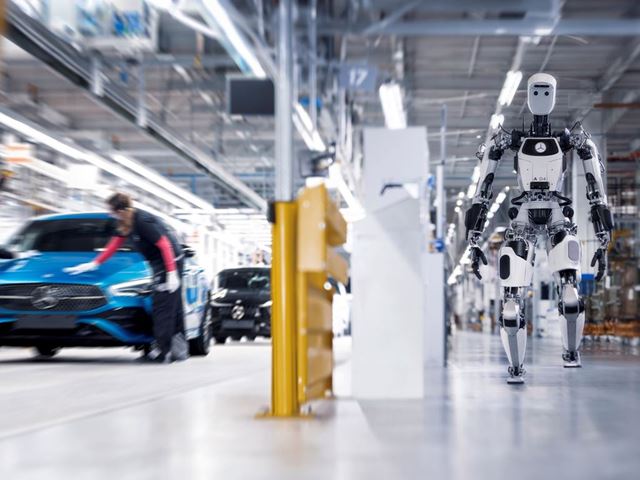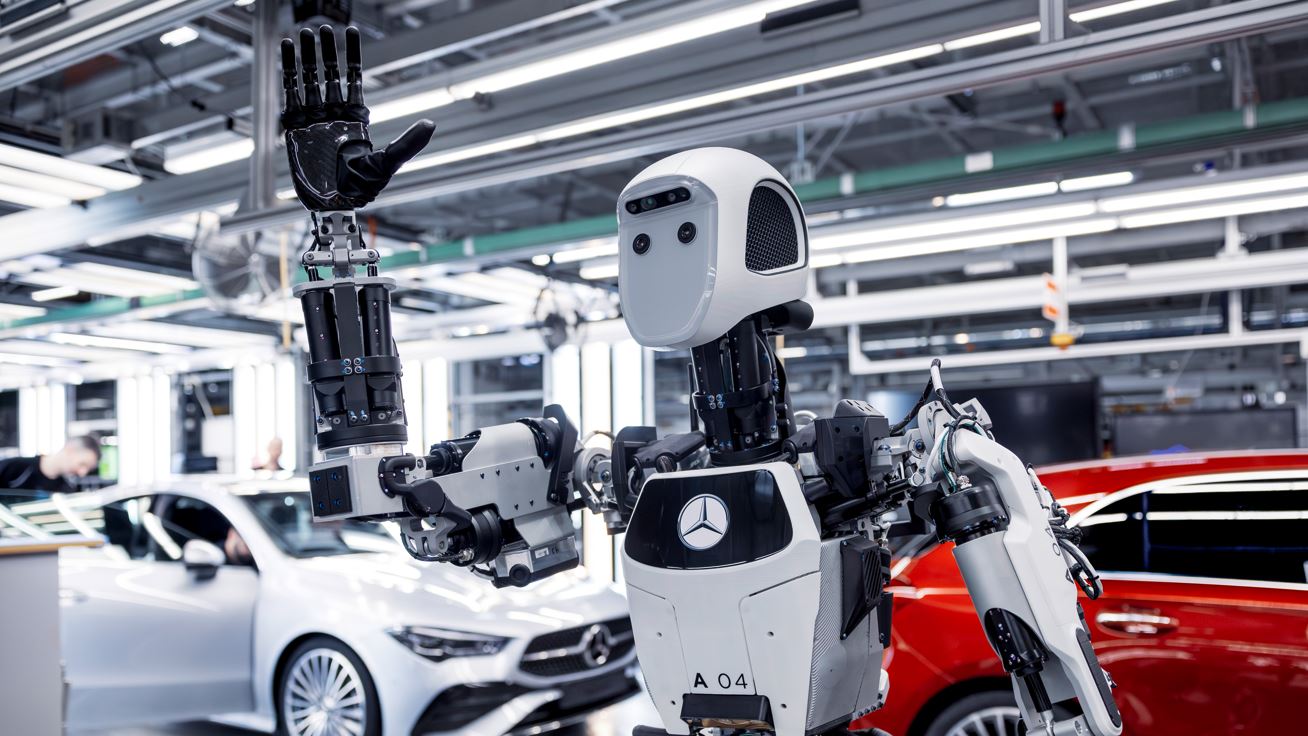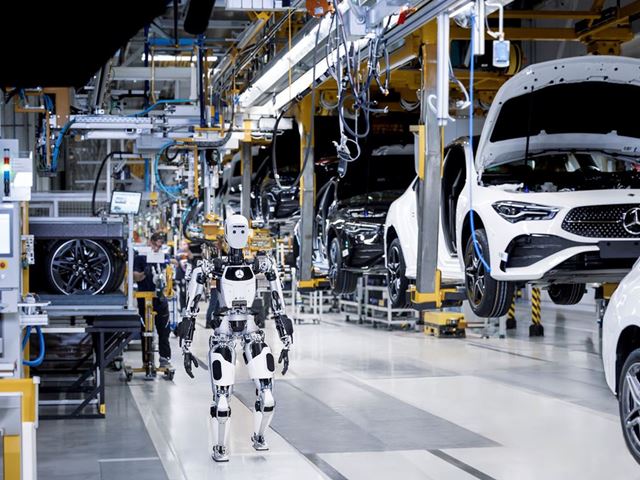
- Latest: Welcome to Auto Futures - Mobility News, Features, Exclusives and More...
- Latest: Gogoro's Global Expansion Plans Boosted by Partnership with Japan's Sumitomo
- Latest: Polestar & StoreDot Charge Polestar 5 Prototype From 10-80% in 10 Minutes
- Latest: Abu Dhabi Autonomous Racing League won by Technical University of Munich
- Latest: Toyota Announces $1.4 Billion Investment in US Plant to Produce All-new BEV
- Latest: The Rise of the Humanoid Robots (and how OEMS can Benefit) - Apptronik's CCO
The Rise of the Humanoid Robots (and how OEMS can Benefit) - Apptronik's Chief Commercial Officer Barry Phillips
Adrian Smith
- Apr 18 2024

The next age of the robots is upon us. Apptronik was founded in early 2016 with the goal of developing robots that will change the way we live and work. The Austin, Texas-based company recently annouced a partnership with Mercedes-Benz to pilot its Apollo Humanoid Robot in Mercedes-Benz's manufacturing facilities.
"Apptronik was created to build robots that empower humans to live to our fullest potential," Barry Phillips, Chief Commercial Officer, Apptronik, tells Auto Futures.
"Industrial companies operating warehouses and facilities are challenged with workforce staffing issues due to the strenuous, high-turnover nature of frontline work. Our robots are designed to augment human workers and alleviate them from physically taxing work like unloading palettes in a warehouse. Humans don’t need to do this type of work alone anymore." he says.
Officially launched in August of 2023, Apollo is an advanced commercial humanoid robot. Apollo culminated from the design and development of over 10 general purpose robots including extensive work on NASA Valkyrie,
"Apptronik designed Apollo from the ground up, including electronics and actuators, to serve dynamic markets where robots can work side-by-side with people to support physical labor and do the tasks that people don’t want to do. By supplementing workers with robotics powered by AI technology, Apptronik is helping to fill holes in the labor market with a specific focus on tasks prone to lead to injury and frequently resulting in employee retention issues."
Apollo’s swappable batteries, each with a four-hour runtime, allows the robots to continue working with a simple battery change rather than each unit requiring a plug-in charge during which time they cannot complete their tasks.
"Apollo has a unique force control architecture that allows it to meet the work demands it will face in warehouse and logistics applications while maintaining safe operation around people. It stands at 5 foot 8 inches tall and 160 pounds, has a payload capacity of 55 pounds, and runs on a 4-hour, hot swappable battery pack that enables around the clock near continuous run-time," explains Phillips.

A New Frontier For the Auto Industry
Apollo is designed to work in logistics and manufacturing settings, so the assembly line of an OEM is a natural fit.
"Mercedes-Benz is exploring potential use cases for Apollo humanoid robots in logistics to bring parts to the production line for workers to assemble while simultaneously inspecting the components and to deliver the totes of kitted parts later in the manufacturing process, but the potential applications as we continue to evolve Apollo are nearly unlimited," says Phillips.
The commercial agreement is the first application of humanoid robotics for Mercedes-Benz.
In a press release, Jörg Burzer, Member of the Board of Management of Mercedes-Benz Group AG, Production, Quality & Supply Chain Management, stated: "We are exploring new possibilities with the use of robotics to support our skilled workforce in manufacturing. This is a new frontier and we want to understand the potential both for robotics and automotive manufacturing to fill labor gaps in areas such as low skill, repetitive and physically demanding work and to free up our highly skilled team members on the line to build the world’s most desirable cars.”
“When we set out to build Apollo, an agreement like the one we’re announcing today with Mercedes-Benz was a dream scenario,” added Jeff Cardenas, co-founder & CEO of Apollo. “Mercedes plans to use robotics and Apollo for automating some low skill, physically challenging, manual labor – a model use case which we’ll see other organizations replicate in the months and years to come.”

New Applications For Apollo
Apollo was designed to be an embodied AI platform that can leverage the latest foundation models for training and generation of robot behaviours. In the future, AI may also help the robot develop a new set of skills.
It's recently announced a collaboration with NVIDIA to enhance humanoid robot learning.
"This allows Apollo to take in various forms of input data, such as language, videos, and human demonstration, train using reinforcement learning, and output useful tasks.The more that Apollo learns over time, the more it will be able to accomplish, and this will carry its use cases beyond its initial applications, even into front-of-house operations, the home, and beyond," concludes Phillips.
Popular Categories
